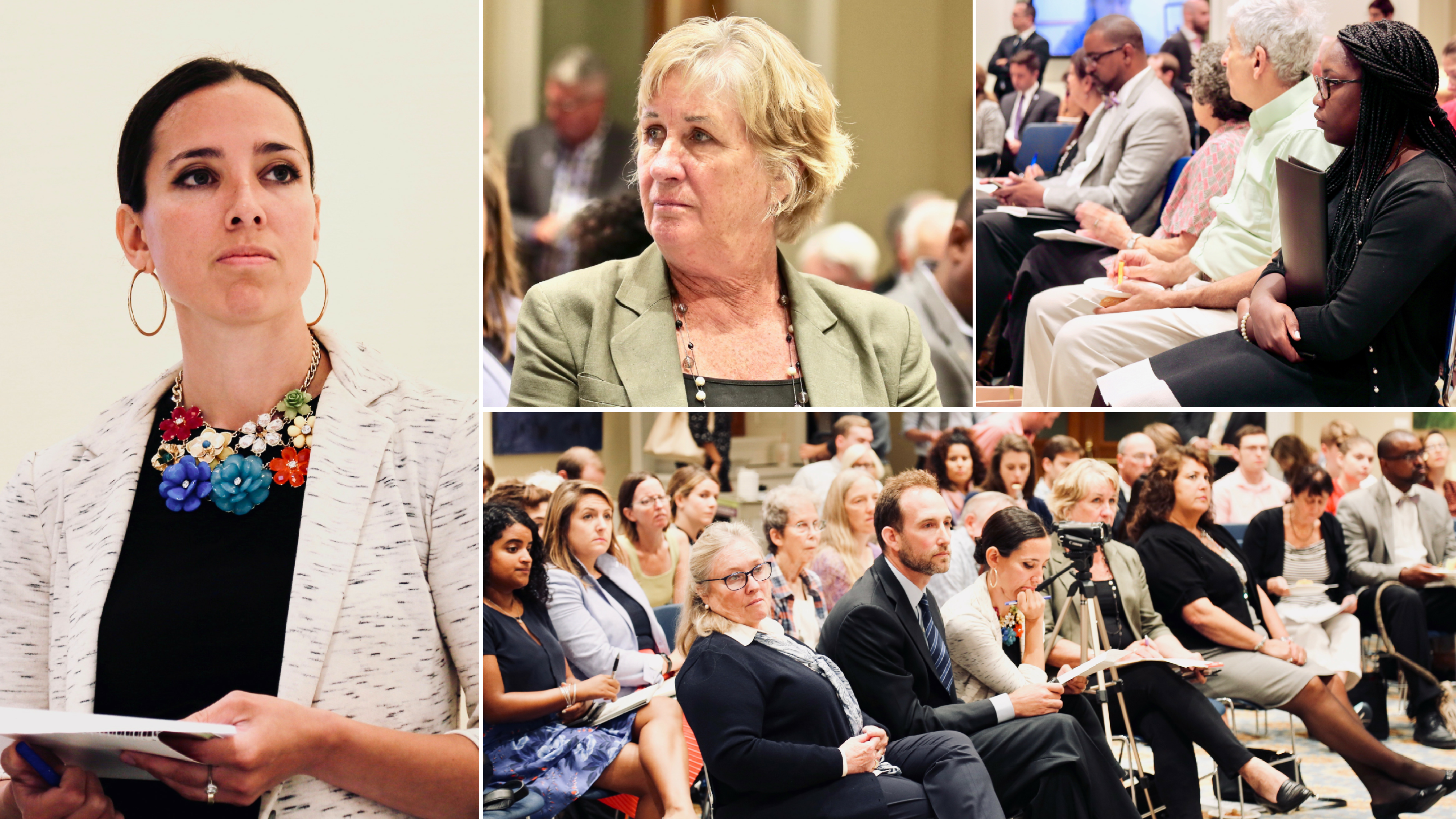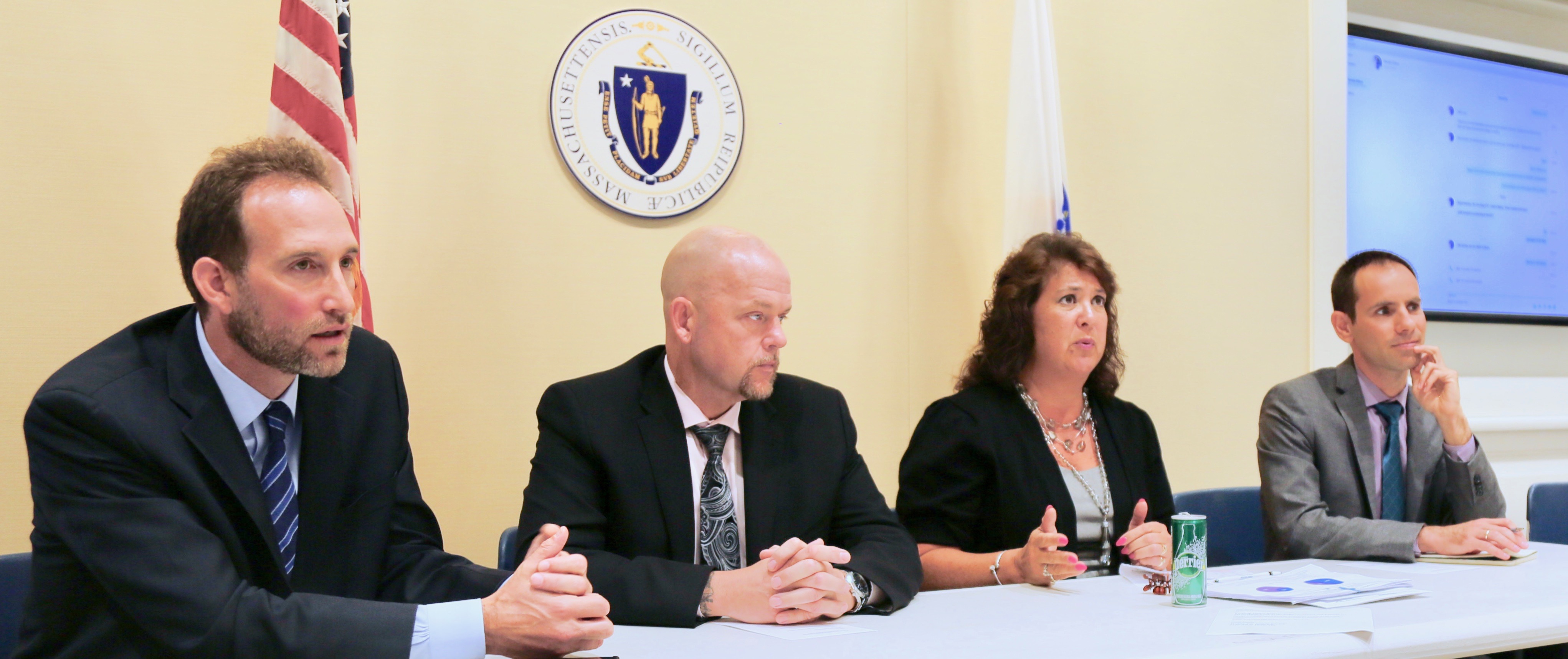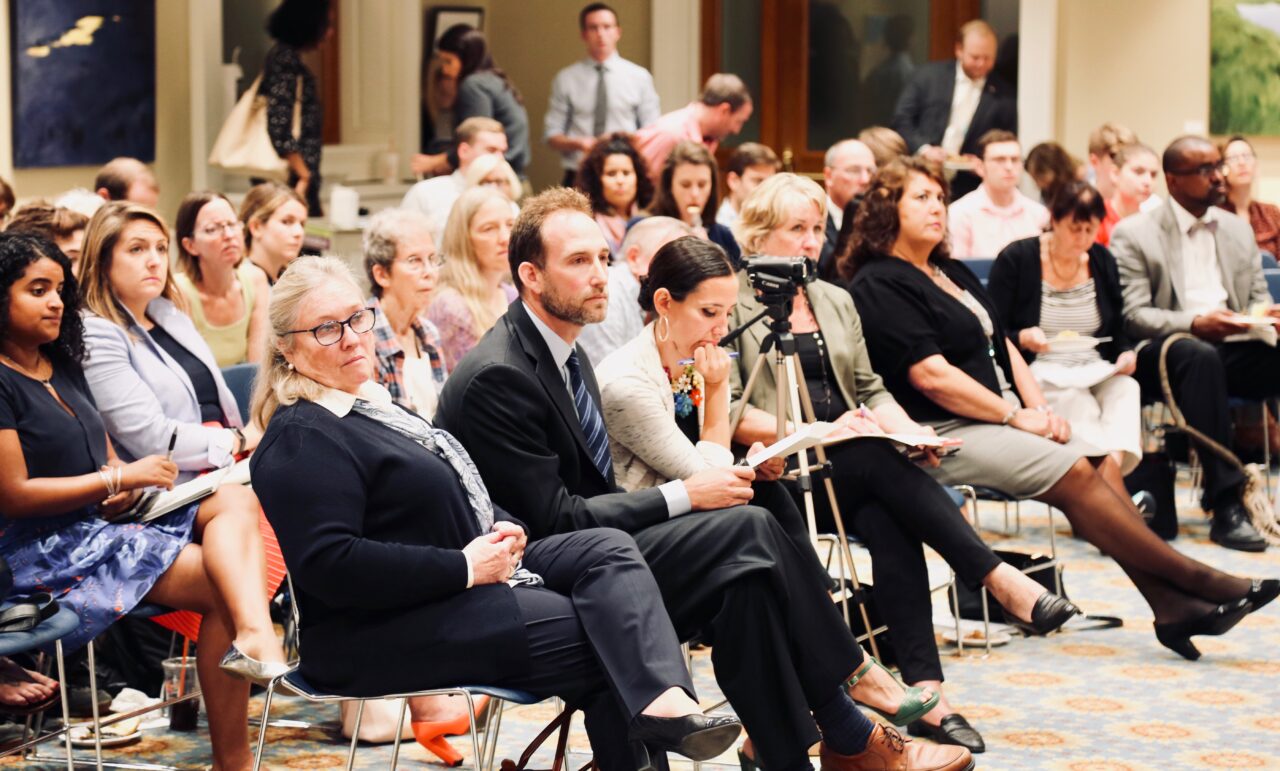
Colorado’s novel approach to justice reinvestment offered new perspective for leaders gathered for a MassINC forum at the State House last week. The event featured Christie Donner, Executive Director of the Colorado Criminal Justice Reform Coalition, who joined via Skype to detail the process of creating a fund that moves savings produced by parole reforms to crime prevention efforts in two cities (click here for Christie’s presentation).
Out of all the state-level criminal justice reform legislation passed over the past decade, Colorado’s bill creating this place-based fund stands out by honoring the original intent of justice reinvestment. When this movement began in the early 2000s, it was specifically about finding a better way in high crime communities, where millions of dollars spent on incarceration were failing to provide public safety.
Colorado’s new law moves resources to crime prevention efforts in neighborhoods disproportionately impacted by crime and incarceration. Funds flow to community foundations, who can re-grant them to local organizations working on a broad spectrum of crime prevention activities. To generate economic activity and repair urban economies, some of the savings will also go to community development financial institutions (CDFI) supporting small businesses with lending and technical assistance. Donner won bipartisan support for this approach by convincing legislators that the status quo simply wasn’t working-if they wanted to increase public safety, they had to responsibly move resources to communities that could redeploy them for greater impact.
Following Christie’s presentation, we heard from a panel of Massachusetts community leaders. They shared the struggles they have securing very modest funding for public safety efforts that we know will produce far better outcomes. Paul Hammersley, the founder of Malden Overcoming Addiction, began with the challenges he has faced finding support for a regional recovery center that could provide those struggling with substance use disorder the community and assistance they need to be successful. It’s almost certain that our failure to invest in proven low-cost community-based recovery models like Paul’s leads to much more expensive correctional expenditure down the road.

Unfortunately, the same is true when it comes to efforts to reduce violent crime and all of its costly consequences. Ramona Reno shared the difficulties Holyoke has faced sustaining the work of the Safe and Successful Youth Initiative; despite the program’s record of accomplishment, the current budget reduces funding for the small grant by nearly one-third.
Yotam Zeira offered reflections on how ROCA developed an innovative funding model to provide more services at scale. With funding tied directly to performance, ROCA is highly accountable for success (this stands in sharp contrast to the correctional system). While the current state of criminal justice data systems makes it difficult for ROCA and organizations like it to demonstrate results, Massachusetts is at the leading edge of this work and it is making progress.
This is promising and it offers direction, particularly as the legislature considers An Act for Justice Reinvestment, which creates a fund similar to Colorado’s. Senator Chang-Diaz and Representative Keefe introduced this bill with backing from a diverse range of community organizations. At the forum last week, Senator Chang-Diaz and Representative Keefe spoke passionately about why Massachusetts must follow a new course. When it comes to spending public dollars to increase public safety, like Colorado is out in front of other states, their leadership on Beacon Hill stands apart.
Massachusetts
Criminal justice reform is at the top of the agenda for the state legislature as lawmakers return to Beacon Hill for the fall session.
The SJC rules cash bail must be affordable.
Advocates say there has been sea change for the better in the operation of Bridgewater State Hospital since the state handed the reins to a new private contractor in April.
Gov. Charlie Baker proposes tougher penalties for drug dealers to combat the state’s opioid crisis.
State Senator Adam Hinds asks the NAACP for support on comprehensive criminal justice reform.
The Charles Hamilton Houston Institute for Race & Justice at Harvard Law School posts video from its June conference on redefining the role of prosecutors.
Other states
Five former New Jersey governors issue a report with policy recommendations for additional action on criminal justice reform.
Two new reports show justice reinvestment is working in South Carolina.
South Dakota sees a 50% decrease in the number of children sentenced to the Department of Corrections, largely thanks to 2015 reform efforts.
Louisiana corrections officials are reviewing the sentences of 16,000 inmates eligible for sentence reductions under new laws.
Republican gubernatorial candidate Ed Gillespie of Virginia takes a progressive stance on criminal justice reform.
In the Brooklyn District Attorney’s race, focus shifts to preventing crime through criminal justice reform.
Oregon’s ACLU chapter launches a campaign to educate voters on electing progressive prosecutors.
In Washington
The Center for American Progress details how Congress can help fund criminal justice reform via appropriations and funding practices.
An Alliance for Safety and Justice poll finds most crime victims feel less safe under the Trump administration’s criminal justice agenda.
A bipartisan bill reducing the time needed for DNA testing is signed into law.
From the Media
WBUR interviews two people together: a man who spent 5 years in a Massachusetts prison solitary confinement unit, and the man who put him there.
Forbes profiles Justice Leaders, an organization empowering formerly incarcerated individuals to advocate from criminal justice reform.
n+1 offers lessons on how the white working class in Philadelphia elected the nation’s must progressive prosecutor.
The New Yorker looks at the cost of the nation’s opioid epidemic and President Trump’s response to the crisis.
From the researchers
Harvard’s Executive Session on Corrections releases a new report calling for a 50 percent reduction in probation caseloads.
A new report from the Brennan Center says crime isn’t on the rise-2017 is set to post the second lowest violent crime rate in any year since 1990.
The Vera Institute finds video conferencing leads to more in-person visits (which reduce recidivism), but the technology is often too expensive for prisoners to utilize.
The Sentencing Project reviews the Supreme Court precedents that limit the use of life without parole sentences for juveniles and the challenges that remain.
